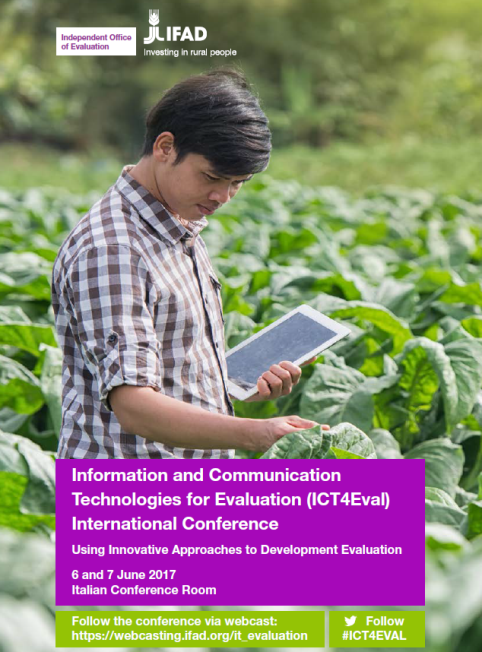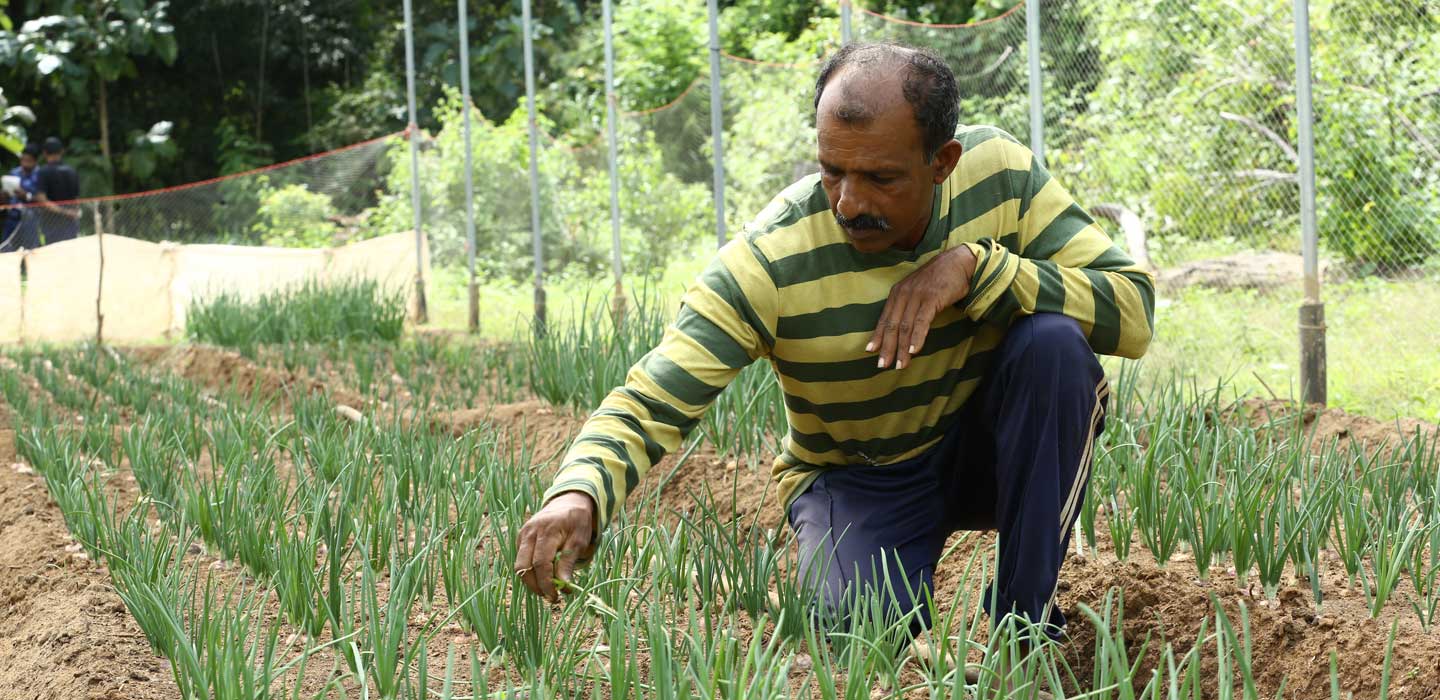Information technologies can improve the lives of rural poor people in developing countries - IOE
Rome, 7 June 2017 – Technology and development experts attended a two-day international conference on Information and Communication Technologies for Evaluation (ICT4Eval) today at IFAD headquarters in Rome. The event was organized by the Independent Office of Evaluation of IFAD (IOE). Participants discussed the latest innovative approaches to using information and communication technologies (ICTs) in development evaluation and whether recent innovations in ICTs have demonstrable benefits in the intersecting fields of development evaluation and rural transformation.
The conference addressed data collection, data analysis, and data dissemination using ICTs, and is meant to identify and provide a platform to discuss the latest innovative approaches in using ICTs for evaluation. ICTs can be used to develop rigorous yet flexible systems to monitor and evaluate rural interventions and determine a more accurate assessment of development impact.
“The introduction of the Sustainable Development Goals (SDGs) has highlighted limitations in terms of measurement and available data. Assessing progress of the SDGs is often a challenge for evaluators. But with challenges also come opportunities to fill the data gap. The proliferation of ICTs has opened up newer and better sources of collecting, analysing and disseminating data for evaluations,” said Oscar A. Garcia, Director, IOE.
According to Garcia, in order to reach the SDGs and Agenda 2030, information and knowledge will be critical to establish a baseline, and to better monitor future progress. ICT4Eval will be one piece of the puzzle to keep ICTs high on the agenda and provide a solid foundation and meeting ground when moving forward.
To further enhance the networking and knowledge exchange at the conference, a tech fair was featured. Participants learned what tools are available to evaluators.
The ICT4Eval conference provided a platform for exchanging views and expertise from across a wide spectrum of development practitioners, including multilateral development organizations, academia and the private sector.
Follow the conference on Twitter at @IFADEval and #ICT4Eval
Press release No: IFAD/33/2017
IFAD invests in rural people, empowering them to reduce poverty, increase food security, improve nutrition and strengthen resilience. Since 1978, we have provided US$18.5 billion in grants and low-interest loans to projects that have reached about 464 million people. IFAD is an international financial institution and a specialized United Nations agency based in Rome – the UN’s food and agriculture hub.
The Independent Office of Evaluation (IOE) conducts evaluations of IFAD-financed policies, strategies and operations to promote accountability and learning. The main purpose is to contribute to improving IFAD's and its partners' performance in reducing rural poverty in recipient countries. IOE's independent evaluations assess the impact of IFAD-funded activities and give an analysis of successes and shortcomings – to tell it the way it is – as well as identify factors affecting performance. Based on the key insights and recommendations drawn from evaluation findings, IOE also communicates and shares IFAD’s knowledge and experience in agriculture and rural development with a wider audience.


